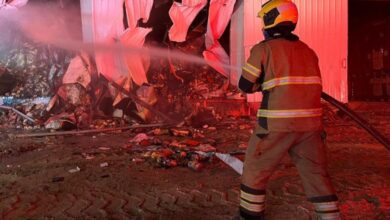
Boeing is once again facing international scrutiny after an Air India Boeing 787-8 Dreamliner crashed shortly after takeoff in Ahmedabad, killing 260 people, including 19 on the ground and all but one of the 242 onboard. The incident marks the deadliest aviation disaster in over a decade.
A preliminary report by India’s Aircraft Accident Investigation Bureau (AAIB) revealed that both engine fuel switches were inexplicably moved to the “cutoff” position moments after takeoff, starving the engines of fuel, reports dw.com quoting Indian media.
While cockpit audio captured one pilot questioning the other about the switch-off, both denied initiating it, leaving the cause — human or mechanical — unclear.
The crash has prompted India and South Korea to mandate fuel system inspections on Boeing jets. Airlines in Japan, Singapore, and Germany are also conducting checks.
The spotlight is now on Boeing’s fuel intake controls, especially amid past FAA directives in 2018 (non-mandatory) and 2022 (mandatory), warning about possible un-commanded fuel shutoffs due to foreign object debris during maintenance.
Air India acknowledged it did not follow up on the 2018 advisory and is currently reviewing compliance with the 2022 directive.
The throttle control module in the crashed jet had been replaced in 2023, though not due to issues with fuel switches, according to the AAIB.
The sole survivor, British national Vishwash Kumar Ramesh, remains in recovery. Meanwhile, Air India’s CEO urged restraint in drawing conclusions, stating all maintenance procedures and preflight checks were completed, and fuel quality was not an issue.
Adding to the tension, the Airline Pilots’ Association of India criticized what they see as premature blame placed on pilots, requesting observer status in the investigation to ensure transparency.
This tragedy comes at a time when Boeing is already battling reputational damage from earlier crashes, whistleblower allegations, and midair incidents — including the 737 Max disasters and recent 787 and 777 emergencies.
With final findings still months away, the global aviation industry remains on edge as the investigation continues.


















